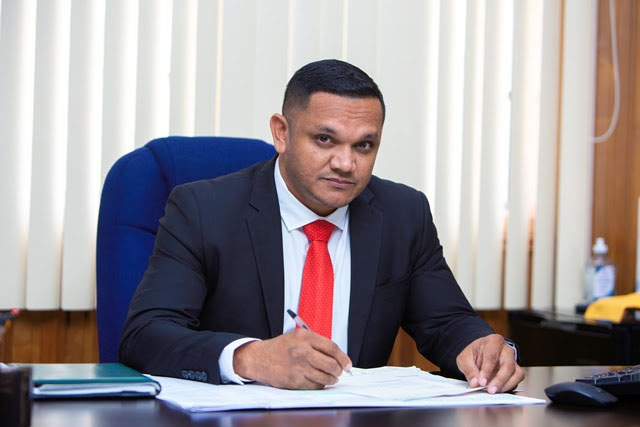So accustomed have Guyanese become to continual disclosures by ExxonMobil of successive ‘world class’ oil discoveries in the Guyana/Suriname Basin that this week’s disclosure by the largest US oil producer on Wednesday January 5, that it had made two further oil discoveries in the Stabroek Block, off Guyana’s coast, an area described as one of the company’s “top bets” for production growth in the decade ahead, evoked no notable response amongst the Guyanese public as a whole.
These days, by far the greater national interest insofar as the country’s oil & gas resources are concerned reposes in the political realm and is, these days, characterised by acrimonious exchanges across the political divide that are centred on the administering of the country’s oil resources, particularly, protecting those resources from partisan political control. How the country’s oil resources, more specifically, its anticipated billions in earnings therefrom, are to be dispersed and more immediately, how to strike a balance between the prerogatives of foreign investors and the local content benefits to be derived by Guyanese investors. There has been, as well, vigorous discourse over how best to protect the country’s oil & gas earnings from political control… the origins of the discourse spawned by the historic mistrust that extends far beyond the oil & gas saga.
Since ExxonMobil commenced its oil recovery pursuits in 2019, Guyana has become the locale for most of the world’s biggest offshore discoveries in years, its estimated ten billion barrels of recoverable oil and gas having been confirmed from the start of Exxon’s recovery pursuits almost three years ago. In recent times, however, the initial euphoria associated with still far from realised dreams of oil wealth have been supplanted by issues that have to do with just how the resources deriving from oil & gas are to be managed and disbursed. Not unexpectedly, that discourse has extended itself into the political realm.
From what we are being told by ExxonMobil, the recent new discoveries at locations named Fangtooth-1 and Lau Lau 1 wells, will add to the company’s resource estimates. In its now accustomed oil & gas-speak the company said that Fangtooth-1 had “encountered high-quality oil-bearing sandstone reservoirs 11 miles (18 km) northwest of its Liza field” and that Lau Lau-1 had encountered “high-quality hydrocarbon-bearing sandstone reservoirs 42 miles (68 km) southeast of Liza.”
On Wednesday the country’s Ministry of Natural Resources issued, “in keeping with the principles of transparency and accountability,” a release informing of the “two new economically viable oil discoveries by Exxon Exploration and Production Guyana (EEPGL) and partners at Fangtooth-1 and Lau-Lau-1 Wells Offshore Guyana within the Stabroek Block.” Its “transparency and accountability” remark clearly took account of the current robust political discourse over the importance of ensuring that oil funds do not end up being misallocated. It is not beyond the realm of possibility this particular ‘discourse’ could become increasingly acrimonious as time goes on.
How to manage resources secured from the oil & gas sector is certain to remain high on Guyana’s political agenda in the period ahead and differences of opinion over just how those funds should be allocated are likely to give rise to further political firefights along the way.
The likely external view that Guyana’s huge oil resources may be vulnerable to misspending and corruption may well have prompted the ‘offer’ by the Deputy Managing Director of the Americas European External Action Service (EEAS), Javier Niño Pérez, to have the European Union (EU) assist in the creation of measures to guard against corruption in the administering of the country’s oil & gas funds. “… we have the capacity through our new development cooperation programme to provide technical assistance for the government to implement those economic reforms and for the government to use those funds effectively and transparently,” Perez highlighted during a discussion held at the University of Guyana, adding that the EU is “strongly experienced” in managing public funds in Europe.
There is no record of an official Government of Guyana response to what the EU official had to say.







